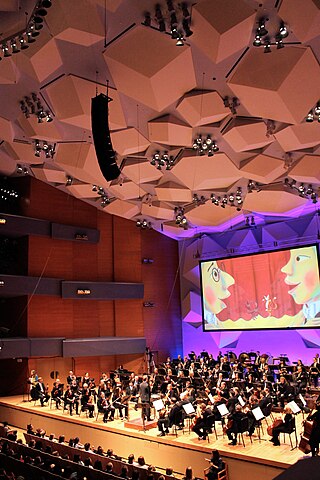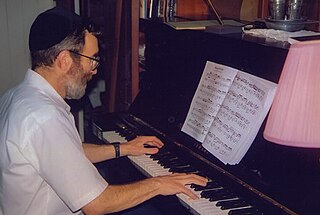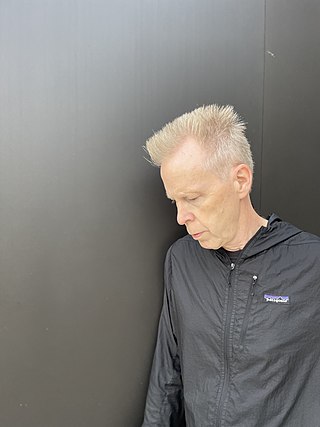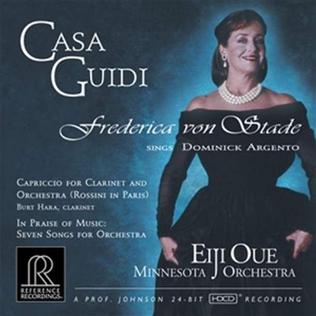Related Research Articles

The Minnesota Orchestra is an American orchestra based in Minneapolis, Minnesota. Founded originally as the Minneapolis Symphony Orchestra in 1903, the Minnesota Orchestra plays most of its concerts at Minneapolis's Orchestra Hall.
The music of Minnesota began with the native rhythms and songs of Indigenous peoples, the first inhabitants of the lands which later became the U.S. state of Minnesota. Métis fur-trading voyageurs introduced the chansons of their French ancestors in the late eighteenth century. As the territory was opened up to white settlement in the 19th century, each group of immigrants brought with them the folk music of their European homelands. Celtic, German, Scandinavian, and Central and Eastern European song and dance remain part of the vernacular music of the state today.

William Elden Bolcom is an American composer and pianist. He has received the Pulitzer Prize, the National Medal of Arts, a Grammy Award, the Detroit Music Award and was named 2007 Composer of the Year by Musical America. He taught composition at the University of Michigan from 1973 until 2008. He is married to mezzo-soprano Joan Morris.

Dominick Argento was an American composer known for his lyric operatic and choral music. Among his best known pieces are the operas Postcard from Morocco, Miss Havisham's Fire, The Masque of Angels, and The Aspern Papers. He also is known for the song cycles Six Elizabethan Songs and From the Diary of Virginia Woolf; the latter earned him the Pulitzer Prize for Music in 1975. In a predominantly tonal context, his music freely combines tonality, atonality and a lyrical use of twelve-tone writing. None of Argento's music approaches the experimental, stringent avant-garde fashions of the post-World War II era.

Paul Schoenfield, also spelled Paul Schoenfeld or Pinchas Schoenfeld, was born January 24, 1947, in Detroit, Michigan and died April 29, 2024, in Jerusalem, Israel. He was a classical composer and pianist known for combining popular, folk, and classical music forms.

Minnesota Opera is a performance organization based in Minneapolis, Minnesota. It was founded as the Center Opera Company in 1963 by the Walker Art Center, and is known for premiering such diverse works as Where the Wild Things Are by Oliver Knussen and Frankenstein by Libby Larsen. Its latest commissioned piece and world premiere, The Fix – based on the story of “Shoeless” Joe Jackson, the Chicago White Sox, and their attempt to fix the world series. with music by Joel Puckett and libretto by Eric Simonson – was presented in February 2019. The President and General Director is Ryan Taylor, and the Artistic Director is Dale Johnson.

Steve Heitzeg is an American composer whose works include compositions for orchestra, chorus, chamber ensemble, ballet, and film.

Stephen Paulus was an American Grammy Award winning composer, best known for his operas and choral music. His style is essentially tonal, and melodic and romantic by nature.

Elizabeth Brown Larsen is a contemporary American classical composer. Along with composer Stephen Paulus, she is a co-founder of the Minnesota Composers Forum, now the American Composers Forum.

Richard Marriott is an American composer and performer. He has composed for film, television, dance, theater, opera, installations and video games. He is the founder and artistic director of the Club Foot Orchestra, an important modern ensemble for live music performance with silent films. His teachers include Dominick Argento and Paul Fetler at the University of Minnesota, Pauline Oliveros at UCSD, North Indian sarod master Ali Akbar Khan, shakuhachi master Masayuki Koga, and Balinese composers Nyoman Windha and Made Subandi. Marriott was a member of Snakefinger's History of the Blues and has recorded with The Residents, Brazilian Girls, "Singer at Large" Johnny J. Blair, and many others. He performs on brass and woodwind instruments, Western and Asian.

Philip Brunelle is an American choral scholar, conductor and organist. He is the founder of VocalEssence. In the course of an international career as a choral and opera conductor Brunelle has been awarded Commander of the Royal Norwegian Order of Merit and made an Honorary Member of the Order of the British Empire as well as receiving Hungary's Kodály Medal, the Ohtli medal from Mexico, and Sweden's Royal Order of the Polar Star. He has received honorary doctoral degrees from Gustavus Adolphus College, St. John's University, St. Olaf College, United Theological Seminary, and the University of Minnesota.

Das Nusch-Nuschi, Op. 20, is an opera in one act by Paul Hindemith, with a German libretto by Franz Blei.
Mark A. Thomsen is an American operatic tenor. He is also a professor and artist in residence at Florida Southern College. His performance repertoire includes the history of opera, from Cavalli, Bach, and Mozart, to Puccini, Verdi, and Richard Strauss, and the premieres of operas by composers such as Dominick Argento, Leonard Bernstein, Carlisle Floyd and Lowell Liebermann.
Brian Mulligan is an American operatic baritone who has performed in major opera houses and concert halls all over the world.
Miss Havisham's Fire is an opera in 2 acts by composer Dominick Argento with an English language libretto by John Olon-Scrymgeour. The work is loosely based on Charles Dickens' 1861 novel Great Expectations, and centers on an investigation of the circumstances surrounding the death of Aurelia Havisham. Commissioned by the New York City Opera, the work premiered on March 22, 1979, at the New York State Theater at the Lincoln Center for the Performing Arts in Manhattan.
Vern Sutton is an American operatic tenor, opera director, and academic. A founding member of the Minnesota Opera, he has created roles in the world premieres of several contemporary operas with that company; including works composed for his voice by Dominick Argento, Libby Larsen, Eric Stokes, Conrad Susa, and Robert Ward. He was also a regularly featured singer on Garrison Keillor's A Prairie Home Companion for three decades, beginning with its first broadcast in 1974.

Okon Fuoko, Op. 58, is a ballet-pantomime for orchestra, vocal soloists, and choir by the Finnish composer Leevi Madetoja, who wrote the piece from 1925–27 concurrent with the composition of his Third Symphony. The Japonisme-influenced libretto is by Danish playwright Poul Knudsen. The story takes place in ancient Japan and, similar to Coppélia, centers around the (successful) efforts of the eponymous puppet-maker to bring a female creation to life. The result is a tragic love-triangle between the seductive doll, the infatuated Okon Fuoko, and his devastated wife. With its unique and exotic musical language, Okon Fuoko is one of Madetoja's "finest" scores; indeed, the last of his "masterpieces".
Edward Foreman was an American operatic bass, scholar of singing technique, and teacher. He was founder and editor of the Pro Musica Press (Minneapolis), which reprinted historical treatises in facsimile and transcription, and also translated them into English. According to Richard Wistreich, these translations offer a uniquely comprehensive and valuable collection of Bel Canto pedagogy in English. He argues that "a growing number of influential singing teachers […] agree [with Foreman]", that there should be a revival of those old, healthy, singing practices.

Casa Guidi: Frederica von Stade Sings Dominick Argento is a 78-minute studio album of contemporary classical music performed by von Stade, Burt Hara and the Minnesota Orchestra under the direction of Eiji Oue. It was released in 2002.
Marjorie Maxine Rusche is an American composer, conductor, and pianist who has composed several operas and was a founding member of the Minnesota Composers Forum.
References
- 1 2 Review: Postcard From Morocco By Tim Page New York Times February 25, 1985.
- 1 2 Center Opera of Minnesota; Philip Brunelle; Dominick Argento Review author[s]: Hugo Cole ,Tempo, New Ser., No. 103. (1972), pp. 55–57.
- ↑ Catalogue Raisonne As Memoir By Dominick Argento University of Minnesota Press, Minneapolis, 2004 pg. 67